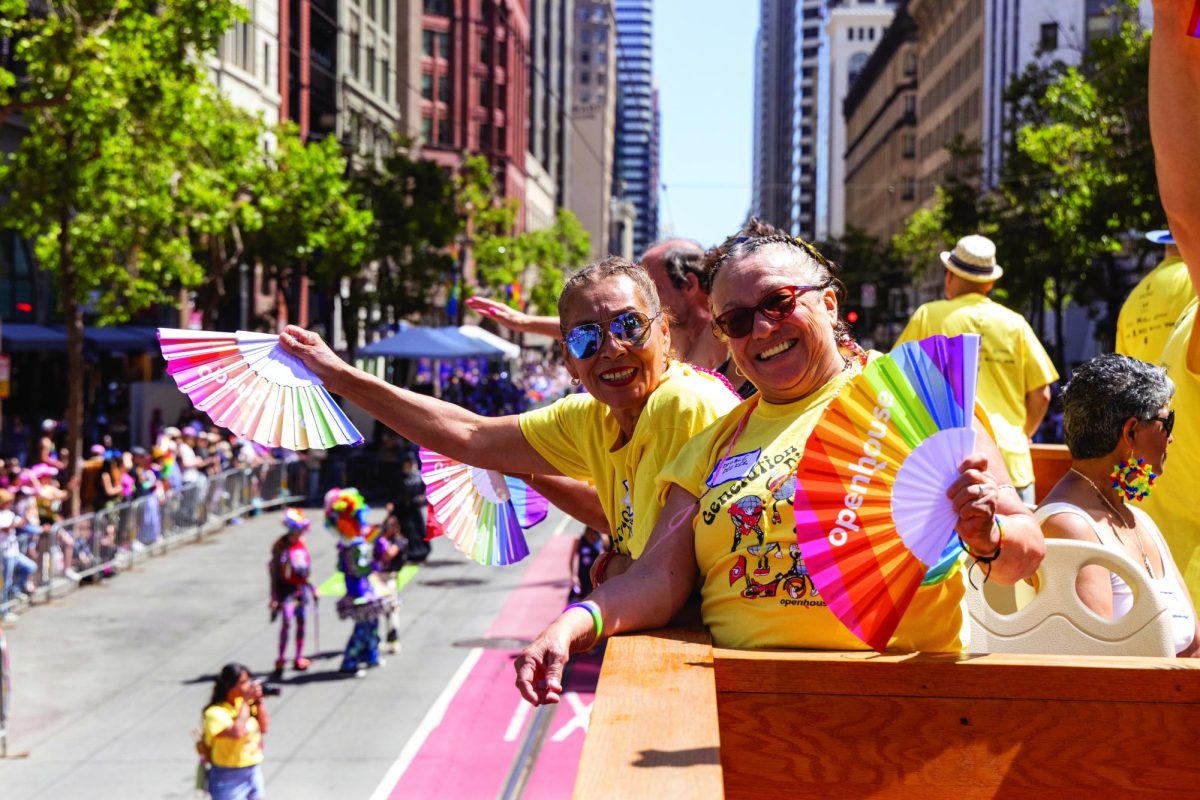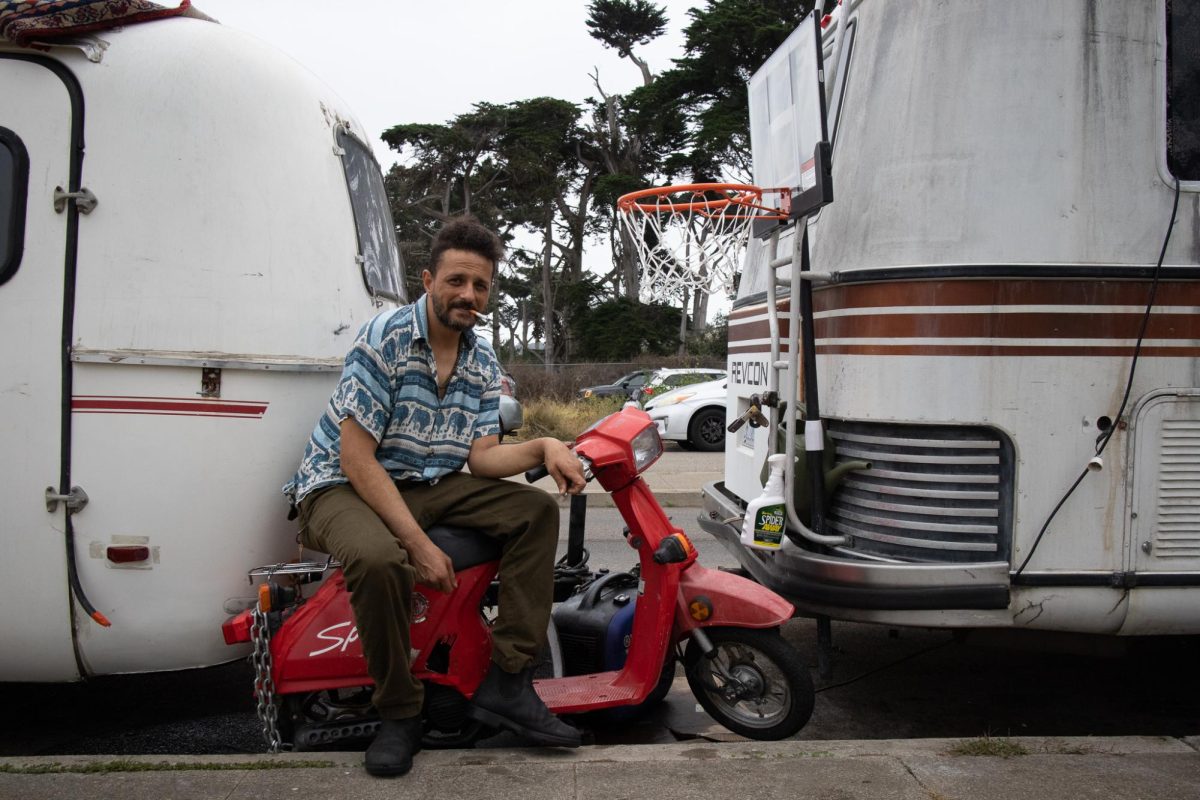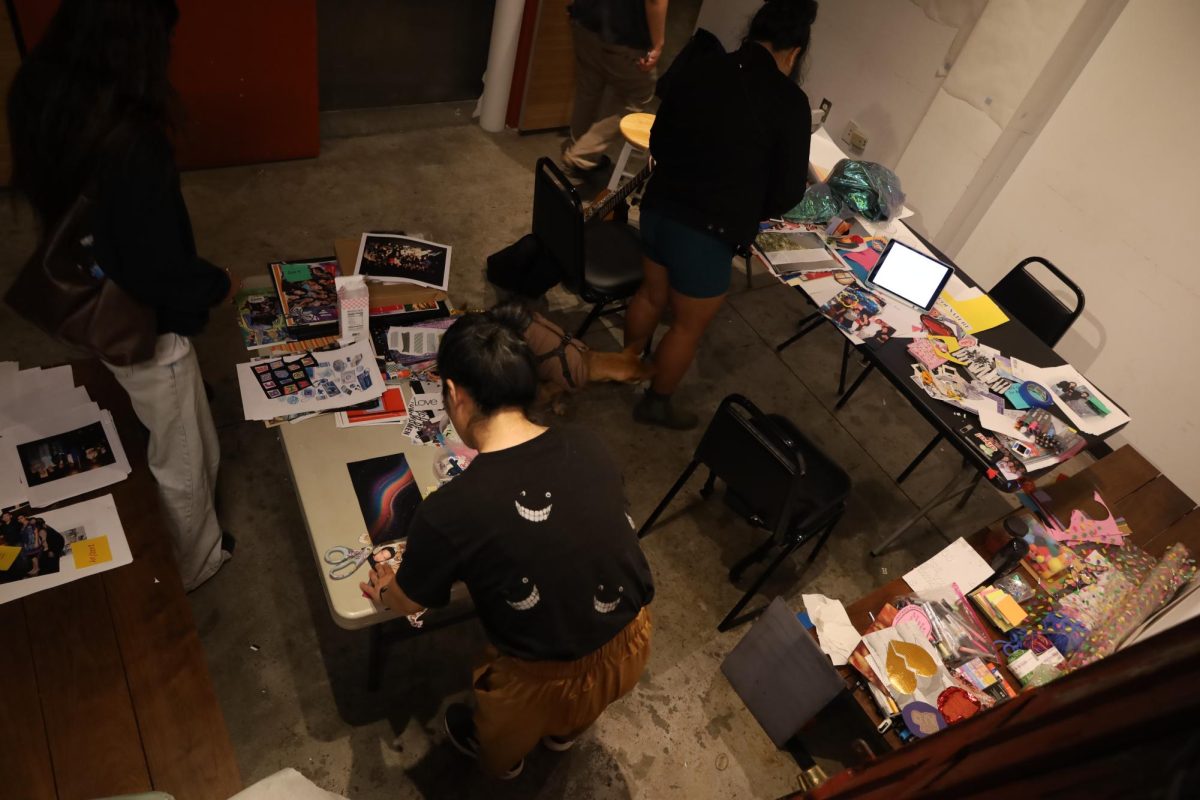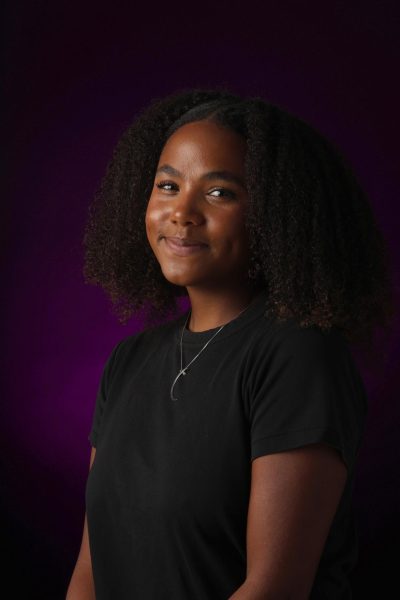When you hear “San Francisco Pride” visions may bubble to the surface: City Hall awash in rainbow light, generations entwined in a shared struggle, the air itself made lighter.
Under the 307-foot dome stood two souls who’d waited nearly 50 years for this moment. Their union was no longer an act of political activism but validation that their rawest forms were honored by the world that consumed them. San Francisco City Hall buzzed with a sense of hope that washed over the city — this feeling didn’t last long.
On Feb. 12, 2004, Del Martin and Phylis Lyon became the first legally married same-sex couple in the United States. Later that year, the Supreme Court stripped their marriage of legal recognition. Still, their union marked the beginning of a new chapter in the fight for LGBTQ+ rights.
Fast-forward 20 years later, and the fight for equality is still ever present. The political climate surrounding basic constitutional rights and freedom has taken front seat in the Trump administration.
During his second term, President Donald Trump has focused on erasing historical facts to reflect his distaste for inclusivity in American culture.
To date, there’s been removal of many references to slavery in regards to the Underground Railroad from the National Park Service’s “Harriet Tubman” webpage, deletion of images and pages of historical events — according to the Associated Press approximately 26,000 images are pending for deletion, including tributes to minority service members such as the Tuskegee Airmen — and alteration of signage in slavery-related exhibits from several national parks.
A fact sheet published by the White House states that “President Trump is restoring fairness and accountability in federal hiring, and terminating DEI [Diversity, Equity and Inclusion] across the federal government.”
“We will terminate every diversity, equity, and inclusion program across the entire federal government,” said President Trump.
As DEI initiatives are being actively stripped from American history, marginalized groups are left to suffer the consequences.
“Especially since they gave so much of their lives to the liberation movement and to see it starting to be erased, it’s painful,” said Charles Renfroe, the development manager at Openhouse — a community and housing space located in San Francisco for older adults part of the LGBTQ+ community.
“They’re angry about it, and they can’t do anything about it. So, you feel helpless, and it’s — it’s revisited trauma.”
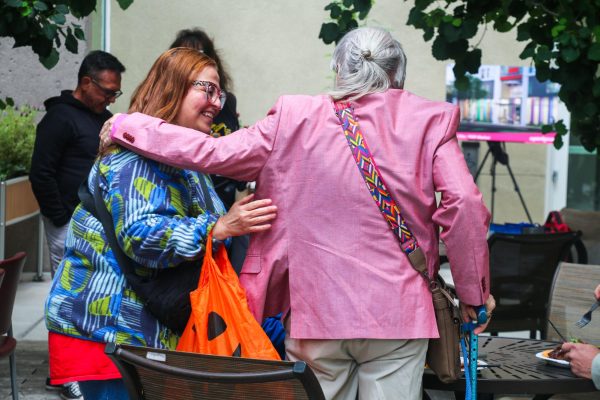
Renfroe came out of retirement to work at Openhouse almost eight years ago. “I was only going to stay for maybe a year after that, but I fell in love with the mission and the people, and just enjoyed interacting with the residents and other community members,” he said.
Openhouse receives most of its funding from the state of California and the city of San Francisco, ensuring the nonprofit’s community services are not solely dependent on federal government support.
“Government funding is probably more at risk than our individual donors, who are LGBTQ folks,” said Renfroe. “I would be wrong to not say that it’s [the administration] having an impact on funding, because it all trickles down.”
Since the start of the pandemic, many LGBTQ+ individuals experienced a significant rise in mental health challenges. Researchers from BMC Psychology linked the rise to greater time spent in unsupportive households and reduced access to affirming social circles.
“Since this administration there has been an increase, you know, of folks getting stressed out about what’s going on, people are more activated,” said Julie Strobel, the volunteer engagement specialist at Openhouse.
“What happens with a lot of our most vulnerable community members is that they go from meal program to meal program across the city, and this is how they eat,” Renfroe said. “After January, a lot of programs had their funding cut — federal funding — so we had a couple congregate meal programs in the city close.”
According to a study done by The Williams Institute School of Law at UCLA, “[n]ot only did LGBT people have lower incomes and were more food insecure than straight/cisgender people, they also more frequently depended on alternative forms of income and assistance to support themselves.”
Every Wednesday, Openhouse gets around two tons of food delivered from the San Francisco-Marin Food Bank. With the help of roughly 10 to 12 volunteers, they deliver bags of groceries to residents and community members. They’ve developed a partnership with Waymo, who provides them with three vehicles to deliver these groceries throughout the city.
“We could not do the work that we do without our volunteers,” Renfroe said. “I think we had about 400 the last fiscal year.”
Manager of Training & Transformation, Lunae Chrysanta shared that the nonprofit was able to connect with healthcare providers and develop workshops for the members because of the grant funding received through California’s Reducing Disparities Project.
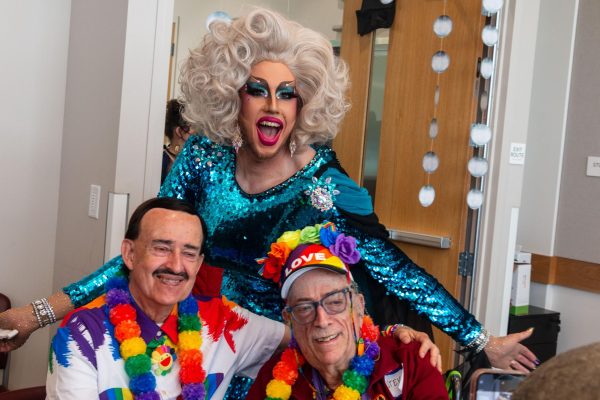
Survey Finds 90% of LGBTQ Youth Report Politics Harm Their Well-Being
The Trevor Project is a non-profit suicide prevention and crisis intervention organization that serves 24/7 support to LGBTQ+ young people. In a 2024 national survey, they found that “90% of LGBTQ+ young people felt their well-being was negatively impacted due to recent politics.”
According to The Trevor Project’s 2024 California State report, “LGBTQ+ young people are not inherently prone to higher suicide risk because of their sexual orientation or gender identity. Rather, they are placed at higher risk because of how they are mistreated and stigmatized in society.”
“Hopefully the younger generations and older folks can kind of unite in the struggle,” said Chrysanta.
Chrysanta, is a queer and trans person of color within the community, thereby resonating deeply with folks at Openhouse. He helps develop and train LGBTQ+ older adults about their history and culture and shows them how it’s relevant to today. “We also work with other nonprofits or any other organization that is interested in learning … how to work with LGBT people, about the history, terminology — we talk a lot about the historical landscape of LGBTQ+ elders.”
“There’s a lot of fear, anxiety [and] disappointment I think, just from, you know, being an LGBTQ elder and kind of living through past discrimination and violence and seeing that come back around again.”
Finding Strength Together as Anti-Trans Rhetoric Escalates
Anti-trans rhetoric is a regular occurrence in Trump’s campaigning strategies and overall influence on the right. According to PBS News, Republicans spent roughly $95 million on anti-trans advertisements during Trump’s 2024 election campaign.
Queer Life Space is a nonprofit that provides mental health services to the Bay Area LGBTQ+ community. “We definitely saw a surge after inauguration,” said Ryan MacCarrigan, executive director at QLS, about the current administration’s effect on the demand for resources.
Therapy is expensive, and nonprofits like QLS have become a rare place where younger people can actually afford access to mental health care.
The organization goes beyond one-on-one and couples counseling, offering training and practicum opportunities for new clinicians.
The Trevor Project’s 2024 survey data shows that three out of five, transgender and non-binary young people who received gender-affirming medical care, which is a notably small percentage, expressed fear of losing access to this care.
“You know the cruelty that they’re showing towards the transgender community right now has not caused an uptick in hatred for the transgender community,” said MacCarrigan. “It has only demonstrated just how craven and gross they are.”
From LGBTQ+ youth to elders, the Trump administration has instilled anxieties within a multitude of demographics, creating fear about the loss of rights, reducing trust in government protections and intensifying the need for affirming mental health resources.
The elders have seen decades of political volatility, but their mindset remains resilient. Chrysanta described them to embody the “we did it before, we’re gonna keep doing it” mentality.
Community events, volunteer work and celebrations of all kinds of people are what bring these groups together, empowering them to support both the larger community and themselves personally.
“We’re at the intersection of age, race, gender, sexual identity, HIV status, able/physical ability — so, all of these come together here at Openhouse,” Renfroe said. “We just have to make sure that everyone feels comfortable coming here, and they feel comfortable when they see staff members who are like them.”



